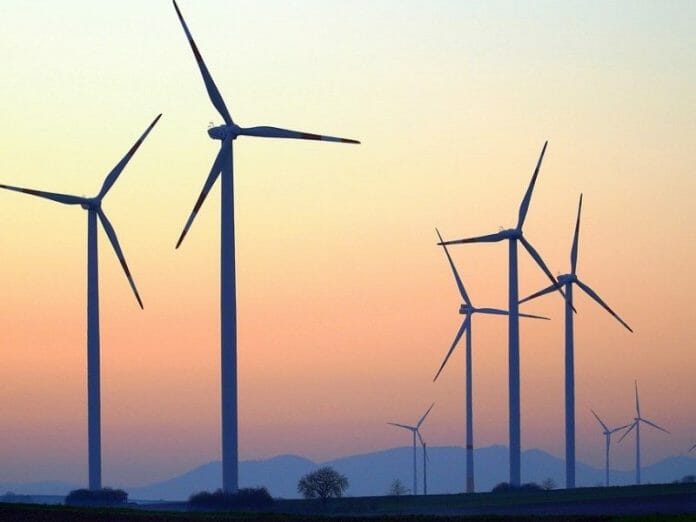In a 2 part-series, Nazery Khalid provides an update on efforts undertaken in Malaysia to prepare for the transition towards cleaner, renewable energy source.
As the world slowly but surely shifts from fossil fuels towards cleaner, renewable energy sources, players in the oil and gas industry are grappling with a compendium of challenges to prepare for this game-changing global movement and seismic transition.
The gradual but unmistakable move away from hydrocarbon energy is taking place against the background of spiralling oil and gas prices triggered by the supply disruptions caused by the Russia-Ukraine war, boom in pent-up global demand for energy post-pandemic, and growing signs of distress arising from global warming and climate change.
This shift is also propelled by loud calls and pressure by climate change activists for businesses and industries to decarbonise and move away from fossil fuels whose use causes adverse effects to the climate and environment. This has prompted the leading players in the energy sector especially oil and gas companies to rebrand themselves as ‘renewable energy companies’ by focusing more on renewable energy than fossil fuel to reduce their carbon footprint and prepare for a low-carbon future.
The world’s leading oil majors have made pronouncements to migrate from their traditional petroleum producing business towards renewable energy. They have outlined their emission-intensity reduction goals and allocate relatively considerable sums towards measures to reduce their carbon footprint and contribute towards finding renewable energy solutions.
Shell has committed to provide more renewable and low- carbon energy options for customers by stepping up investments in wind, solar, electric vehicle charging and hydrogen energy sectors, among others cleaner energy sources.
ExxonMobil has pledged to invest over US$15 billion in the next few years in initiatives to lower greenhouse gas emission (GHG) initiatives.
Here in Malaysia, Petronas has also initiated efforts to reduce its carbon footprint and play a leading role in helping Malaysia to embark on its net-zero carbon journey. The national oil company has started to build collaborations with international companies and harness their collective expertise, experience and available low-carbon solutions technologies to explore and exploit opportunities in green technology such as carbon capture, utilisation and storage (CCUS), hydrogen and biofuels to support the national drive towards reducing emissions.
Its zero-carbon strategy has come at a time when the energy sector has arrived at a crossroad leading to a low carbon path amid growing demand for cleaner energy sources such as gas, hydrogen, wind, solar and bio-based sources.
This is in line with national decarbonisation targets outlined in the recently launched National Energy Policy (NEP) 2022-2040 and the National Low Carbon Aspiration Plan (NLCAP) 2040 whose implementation can be expected to not only benefit the environment but also create positive economic effects to the country.
DTN was formulated to help Malaysia achieve net zero GHG by 2050 in the face of mounting concerns over climate change and as it faces the challenges of energy transition.
It contains 12 strategies and 31 action plans aimed at transforming Malaysia into a low carbon nation and their implementation will be overseen by a National Energy Council.
Through the DTN initiatives, Malaysia’s energy sector is expected to attract RM9.2 billion in investments annually from local and foreign investors. Meanwhile, the implementation of NLCAP 2040 is expected to continue RM13 billion to Malaysia’s GDP annually and create an estimated 207,000 jobs.
Transition Time
Sceptics may raise doubts in the sincerity of oil majors which continue to rake in huge profits from fossil fuels and continue to contribute towards global warming and climate change through their operations. There has been audible outcry over the exorbitant profits recorded by fossil-fuel based companies in recent quarters amid growing devastating effects of climate change, rising inflation and growing economic hardship worldwide.
No less than the United Nations Secretary General, Antonio Guterres has described the record profits chalked by oil majors as ‘immoral’ and has called governments to impose higher taxes on them.
US President Joe Biden chastised American oil giant ExxonMobil for ‘making money more than God’ by exploiting the post-pandemic energy demand boom and supply deficit and fleecing consumers after benefiting from the estimated US$750 billion bond buyback rescue package offered by the US Government to fossil fuel-based companies affected by the Covid-19 outbreak.
However, morality questions aside over the astronomical profits and questionable ethics of oil majors, credit must be given to where it is due. There is no denying that oil majors have made laudable efforts and investments in low-carbon solutions to decarbonise.
This may appear jarring as reports have emerged that they also spent around US$200 million annually in efforts to delay, regulate or oppose climate change initiatives. Their goals to attain net-zero, while taken with a pinch of salt by the sceptics, are consistent with international targets on emissions reduction such as Paris Agreement, Global Methane Pledge of the US and EU and Methane Emissions Reduction Action Plan, and in keeping with some of the Sustainable Development Goals of the United Nations for a more sustainable future for all.
The signs are clear – the world is already and unmistakably feeling the adverse effects of global warming and climate change, and industries need to step up to the plate to address the issue by polluting less and reducing their emissions.
Step forward oil and gas industry players who are at the forefront of the global economy to lead from the front to reduce global emissions through lowering their operational carbon footprint and investing in clean, renewable energy.
Nazery Khalid is a prominent writer, commentator and international speaker of various subjects, among them being renewable energy.









